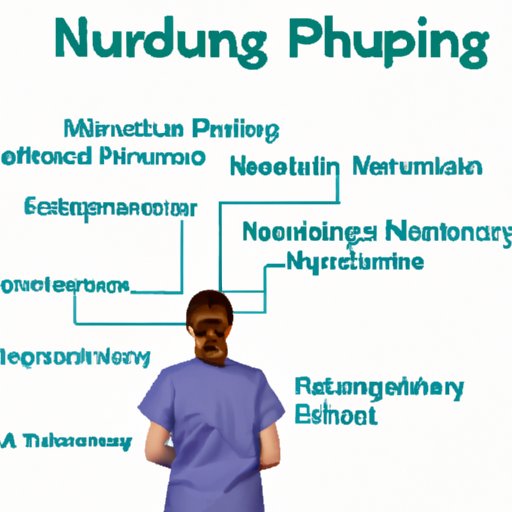Introduction
Public health nursing is a specialized field of nursing that focuses on improving the health of individuals, families, and communities. Public health nurses are responsible for providing health education, promoting preventive health measures, and identifying and addressing health-related issues in the community. They work closely with other healthcare professionals, such as physicians and social workers, to provide comprehensive care to patients.

Exploring Different Types of Public Health Nursing
Public health nurses can take on many different roles, including health educators, case managers, community outreach workers, and epidemiologists. Health educators provide information about health topics to individuals and groups. They also develop educational materials and programs to help people make healthy lifestyle choices. Case managers help coordinate care for individuals who have chronic or complex health conditions. Community outreach workers connect at-risk populations with resources and services that can improve their health. Epidemiologists study the causes and spread of diseases and create strategies to prevent them.
Public health nurses also play an important role in responding to public health emergencies, such as disease outbreaks. They can provide health screenings, vaccinations, and other medical interventions to affected populations. In addition, they can offer emotional support and assistance with accessing medical care. According to research conducted by the National Institutes of Health (NIH), public health nurses “play a critical role in the response to major disasters and public health crises.”

Examining the Benefits of Public Health Nursing
Public health nurses can make a tremendous difference in the lives of their patients and the communities they serve. They provide information and support that can help people lead healthier lives. For example, public health nurses can provide health screenings and immunizations to prevent serious illnesses. They can also offer counseling and referrals to other healthcare providers when needed.
Working as a public health nurse can also be personally rewarding. Public health nurses often have the opportunity to work with diverse populations and make a lasting impact on the health of their communities. Additionally, they may get to travel and participate in a variety of activities, such as health fairs and community events. According to the American Public Health Association, public health nurses “gain satisfaction from knowing their work improves the overall health of their clients and communities.”

Investigating the Challenges of Being a Public Health Nurse
Public health nurses face a number of challenges in their day-to-day work. They may be exposed to hazardous materials, such as blood and body fluids, which can put them at risk for infection and injury. Time management and workload can also be a challenge, as public health nurses may have to juggle multiple tasks at once. Additionally, public health nurses often have to deal with difficult situations, such as working with patients who are resistant to change or have mental health issues.
Furthermore, public health nurses may be understaffed, underfunded, and undertrained, which can affect their ability to provide quality care. According to a study published in the Journal of Nursing Administration, “Public health nurses are often required to perform duties beyond their scope of practice due to lack of resources or personnel.”
Showcasing Success Stories of Public Health Nurses
Public health nurses have achieved great success in improving the health of their patients and communities. For example, public health nurses in New York City developed a program to reduce smoking among young adults. Through this program, they provided education and support to participants and helped them quit smoking. As a result, the program was successful in reducing smoking rates in the target population.
Public health nurses have also had individual successes. For instance, one public health nurse in California developed a program to provide health screenings and education to low-income seniors. Through her efforts, she was able to improve access to healthcare for underserved populations and reduce health disparities.
Highlighting the Contributions of Public Health Nurses to Society
Public health nurses have made significant contributions to society. They have improved healthcare outcomes by providing preventive care and educating individuals about healthy lifestyles. They have also been instrumental in responding to public health emergencies, such as disease outbreaks and natural disasters. According to the NIH, “Public health nurses are essential to the public health system’s capacity to respond effectively to public health threats.”
In addition, public health nurses have worked to reduce health disparities and improve access to healthcare for underserved populations. By connecting vulnerable populations with resources and services, public health nurses have helped to ensure that everyone has access to quality healthcare.
Conclusion
Public health nurses play an essential role in improving the health of individuals, families, and communities. They provide health education, promote preventive health measures, and identify and address health-related issues. They also work to reduce health disparities and improve access to healthcare for underserved populations. Although public health nurses face many challenges, they can take pride in the positive impact they have made on the health of their patients and communities.
If you’re interested in becoming a public health nurse, consider researching available opportunities and looking into educational requirements. With dedication and hard work, you can make a lasting impact on the health of your community.
(Note: Is this article not meeting your expectations? Do you have knowledge or insights to share? Unlock new opportunities and expand your reach by joining our authors team. Click Registration to join us and share your expertise with our readers.)
